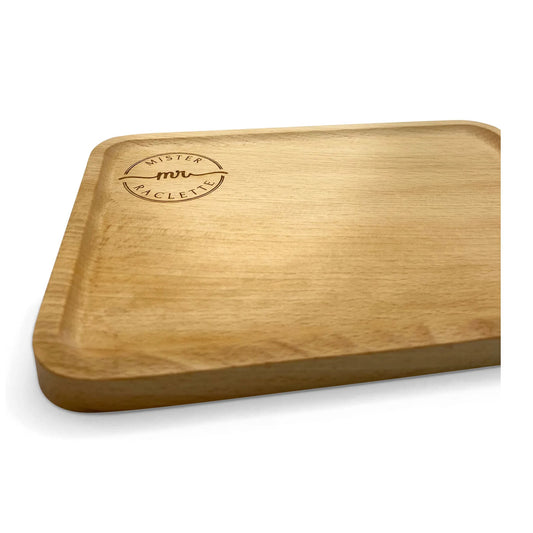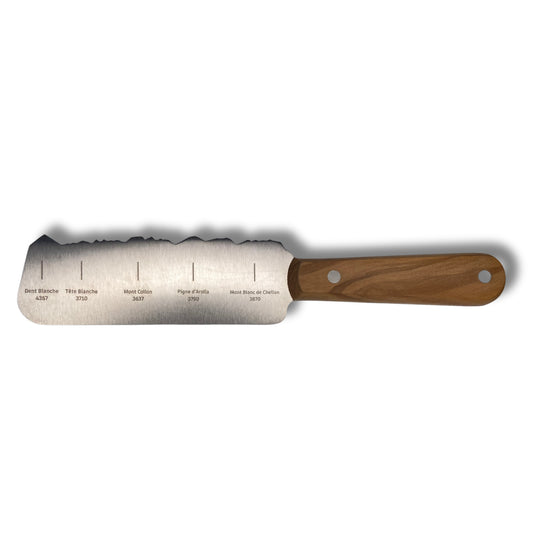The nutritional benefits of raclette cheese
The nutritional benefits of raclette cheese are not limited to its melting and irresistible taste . This iconic cheese instantly conjures up images of friendly and warm moments shared with friends or family. However, well beyond its delicious appearance, it hides an unsuspected nutritional richness. While many people hesitate to consume it because of its caloric and fatty reputation, science is now revealing benefits of cheese that deserve our full attention.
An unsuspected ally for cardiovascular health
Contrary to popular belief, the composition of raclette cheese can be an ally for cardiovascular health . A French study conducted on more than 100,000 participants highlighted a surprising result: people who consumed fermented dairy products, such as yogurts or cheeses , had a 20% reduced risk of stroke compared to those who consumed little.
This discovery, which may seem paradoxical at first glance, is partly explained by the nutritional composition of cheese such as that used for raclette . Their matrix, formed of calcium , proteins and molecules from milk, neutralizes the negative effects of the saturated fats they contain. By consuming this type of cheese , we could actually protect our heart while enjoying ourselves.
A valuable aid against bad cholesterol

Raclette cheese also plays a vital role in cholesterol management. Contrary to popular belief, its consumption does not increase cholesterol levels in the body. In fact, the calcium present in this cheese (bone health ) helps eliminate bad cholesterol absorbed by other foods and makes it a calcium champion.
This natural mechanism is an additional argument for including this delicacy in a balanced diet. Raclette cheese is therefore not only a delicacy, but also a food that helps maintain a lipid balance that is beneficial for health .
A wealth of probiotics for better health
Another reason not to shy away from raclette cheese is its richness in probiotics. These good bacteria, present in fermented dairy products, play a key role in digestive and immune health . Probiotics help regulate intestinal flora and strengthen our immune system, but they don't stop there.
They also produce anti-inflammatory substances that protect against chronic inflammation, which is often responsible for cardiovascular diseases. By choosing a quality raclette cheese , you are therefore providing your body with natural support to fight inflammation and strengthen your immune defenses.
Rich in beneficial lipids

Raclette cheese is also an important source of lipids , which are an essential energy reserve for the body. These fats, although mostly saturated, play a key role in the absorption of fat-soluble vitamins (A, D, E and K). In addition, the cheese's unique nutritional matrix, composed of calcium and protein , limits the negative impact of saturated fats on the body. Consumed in moderation, raclette cheese therefore contributes to a balanced diet while providing a melting texture and an irresistible flavor.
Low glycemic index, low carbohydrate composition
Hard raclette cheese also has the advantage of having a very low, if not zero, glycemic index of cheese. This means that it does not cause significant variations in blood sugar levels, making it a suitable food for people monitoring their blood sugar, including diabetics.
Unlike carbohydrate- rich foods, such as potatoes that often accompany it, cheese does not have a direct impact on blood sugar. This means that it can be consumed without concern in this specific context.
Mineral and calcium intake

In addition to its other benefits, raclette cheese is an excellent source of calcium, an essential mineral for bone health . With no less than 661 mg of calcium per 100 g, it helps prevent problems such as osteoporosis by strengthening bone density. It is particularly beneficial for bone growth in children and bone mineralization in adults. In addition, it also contains other essential minerals, such as phosphorus, which play a role in maintaining a balanced metabolism and energy production.
An excellent source of protein
Hard raclette cheese also has a high-quality protein content, which plays an essential role in maintaining and repairing body tissues. Protein is essential for building muscle, the functioning of enzymes and hormones, and for strengthening the immune system. With around 20 to 25 g of protein per 100 g, raclette cheese can effectively supplement the protein intake required in a day. It has a high protein content. Combined with other sources such as cold cuts or potatoes, it offers a balanced and tasty meal.
Vitamins in potatoes in Valais raclette

Potatoes, often served as an accompaniment to raclette , are a veritable wealth of nutritional benefits. Rich in vitamin C, they play a key role as a natural antioxidant, protecting cells from oxidative damage.
The vitamin B6 content, also present in significant quantities, is essential to support the immune system. In addition, their dietary fiber content promotes good digestion and helps maintain a feeling of satiety. As a complex energy source thanks to their carbohydrate content, potatoes perfectly complete the meal by providing lasting energy, ideal for active days.
Raclette cheese contains vitamin B9 (folate), although in small amounts. Vitamin B9 intake plays an essential role in the formation of red blood cells and the proper functioning of the nervous system. It is especially important for pregnant women, as it promotes fetal development.
Consumption of pickles in raclette
Pickles, a classic accompaniment to raclette, also provide interesting benefits. Low in calories , they balance the meal by offering plenty of flavor without adding caloric weight. Lactofermented pickles are a natural source of probiotics, promoting good intestinal health and strengthening the microbiota.
Their antioxidant content, especially vitamin C, helps protect cells from oxidative stress. In addition, their acidity stimulates gastric juices, facilitating the digestion of rich foods such as cheese. Finally, thanks to their sodium content, they help maintain electrolyte balance, which can be beneficial after physical exertion.
Alpine Cheese vs. Dairy Cheese: A Nutritional Comparison
Alpine cheese and dairy cheese, while both delicious, have notable nutritional differences. Alpine cheese, produced from the milk of cows fed exclusively on grass and pasture flowers, contains increased amounts of natural antioxidants and a notable omega-3 content.
These essential fatty acids play a crucial role in cardiovascular and brain health , reducing inflammation and promoting healthy lipid balance.
On the other hand, dairy cheese, often made from milk from cows fed processed foods like grains, is generally lower in omega-3s. Although it is still an excellent source of calcium, protein and vitamins.
In terms of taste, alpine cheese is distinguished by more complex and intense flavors, reflecting the diversity of plants consumed by the cows. Dairy cheese, on the other hand, offers a more consistent taste profile, which may appeal to those looking for a less pronounced experience.
The environmental impact of raclette cheese
The choice between alpine cheese and dairy cheese also has environmental implications. Alpine cheese, produced using traditional methods, is based on extensive agriculture where cows graze freely.
This promotes the biodiversity of pastures, limits the use of imported feed, and thus reduces the carbon footprint. Cows in mountain pastures also participate in the natural maintenance of meadows, preventing their reforestation and maintaining open ecosystems rich in plant and animal species.
In Swiss dairies, even if cows are sometimes partially fed with concentrated feed, they benefit from particular attention to animal welfare and sustainable management of resources.
These farms contribute to the local economy and adhere to strict quality standards, limiting negative impacts. Often associated with intensive farming systems in other parts of the world.
Another positive aspect of Swiss production is the management of organic waste. Cow droppings are often used to fertilize fields in a controlled manner, thus reducing the use of chemical fertilizers. This contributes to a more circular and environmentally friendly agricultural cycle.
Thus, favoring Swiss cheese, whether from the mountain pastures or from the dairy, means supporting agriculture that values respect for landscapes, animals and sustainable practices.
Don't forget the calories in cheese
However, it is worth remembering in this article that raclette cheese (an emblematic dish of Swiss cuisine) remains a high-calorie food. This does not mean that you should deprive yourself of it, but rather that it should be consumed in moderation and intelligence. A reasonable portion of raclette cheese, integrated into a varied diet, allows you to benefit from its multiple nutritional benefits without overloading the body.
So, raclette cheese is not only a taste pleasure, but also a food rich in health benefits. Between its protective effects on the heart, its help in managing cholesterol, its beneficial probiotics, its omega-3 content and its calcium intake. It deserves a special place in our diet. The next time you share a raclette evening, you can savor each bite knowing that you are taking care of your good health. All while enjoying a valuable friendly moment, and in all seasons.









